Excavators are versatile machines commonly used in construction and landscaping projects. They can be equipped with various attachments to perform specific tasks efficiently. In this comparative analysis, we will delve into the world of excavator attachments, focusing on hydraulic flail mower for excavator and excavator brush cutters. These two attachments serve distinct purposes in maintaining green spaces and managing vegetation. We will explore their features, applications, advantages, and limitations to help you make an informed choice for your specific needs.
Excavator Lawn Mowers:
Excavator lawn mowers are specialized attachments designed to cut and maintain grassy areas. Here are some key features and advantages of hydraulic flail mower for excavator:
- Cutting Efficiency: Excavator lawn mowers utilize large rotary blades or flail attachments that can cover significant ground area quickly. They are ideal for maintaining expansive lawns, parks, golf courses, and sports fields.
- Versatility: These attachments can be mounted on excavators of various sizes, making them adaptable to different projects. The cutting height can often be adjusted to achieve desired grass lengths.
- Safety and Precision: Hydraulic flail mower for excavatorare engineered with safety features such as shielding to protect the operator from flying debris. They also offer precise cutting capabilities, allowing for neat and uniform grass cutting patterns.
- Accessibility: With an excavator, you can reach areas that might be challenging for traditional lawn mowers or tractors. Excavator lawn mowers can tackle uneven terrain, slopes, and hard-to-reach corners with ease.
- Mulching and Collection Options: Some models offer mulching or grass collection capabilities, enabling efficient management of clippings. Mulching reduces the need for disposal and can serve as natural fertilizer for the lawn.
Excavator Brush Cutters:
Excavator brush cutters, on the other hand, are designed to tackle dense vegetation, bushes, and small trees. Let’s explore their distinctive features and advantages:
- Cutting Power: Excavator brush cutters employ heavy-duty blades or chains to effectively cut through thick vegetation. They are specifically engineered for handling dense undergrowth, shrubs, and even small trees, making them suitable for land clearing and site preparation.
- Enhanced Reach: With the extended reach of an excavator, brush cutters can access areas that may be otherwise difficult to reach manually or with handheld tools. This capability is particularly beneficial for maintaining road embankments, riverbanks, and overgrown areas.
- Versatility: Excavator brush cutters can be equipped with different blade types and configurations, allowing them to adapt to a wide range of vegetation types and cutting requirements. Some models even offer the option to switch between cutting and mulching modes.
- Durability: Due to the rugged nature of their applications, excavator brush cutters are built to withstand tough conditions. They are constructed with reinforced materials and reinforced blades, ensuring prolonged durability and reliability.
- Safety Measures: Excavator brush cutters are designed with safety considerations in mind. Many models feature protective shields and debris deflectors to safeguard the operator and surrounding areas from flying debris during operation.
Conclusion:
Both hydraulic flail mower for excavator and excavator brush cutters offer valuable solutions for vegetation management, but their applications and features are tailored to different needs. Excavator lawn mowers excel in maintaining lawns, parks, and sports fields, providing efficient grass cutting and versatile operation. On the other hand, excavator brush cutters are ideal for tackling dense vegetation, undergrowth, and small trees in land clearing projects.
When considering which attachment to choose, it is important to evaluate your specific requirements, project scale, and the type of vegetation you will be encountering. If you primarily deal with large areas of grassy terrain, such as parks or golf courses, an excavator lawn mower would be a suitable choice. Its cutting efficiency, versatility, and ability to handle uneven terrain make it an effective tool for maintaining expansive lawns.
On the contrary, if your project involves clearing overgrown areas, tackling thick vegetation, or removing small trees, an excavator brush cutter is the more appropriate option. Its cutting power, enhanced reach, and durability make it well-suited for demanding tasks, such as land clearing and site preparation.
It’s worth noting that some projects may require both attachments to address different aspects of vegetation management. In such cases, having both an excavator lawn mower and an excavator brush cutter allows for a comprehensive approach to maintain green spaces effectively.
Additionally, considering the safety features of each attachment is essential. Both excavator lawn mowers and excavator brush cutters are designed with operator safety in mind, featuring protective shields and debris deflectors. However, it is crucial to follow proper safety protocols and wear appropriate personal protective equipment (PPE) while operating these attachments.
Furthermore, budget and availability of attachments may also influence your decision. Excavator lawn mowers and brush cutters come in various sizes, configurations, and price ranges. It is advisable to consult with equipment suppliers or industry professionals to determine the most suitable attachment for your specific project requirements while considering budgetary constraints.
In conclusion, when comparing hydraulic flail mower for excavator and excavator brush cutters, it is evident that they serve different purposes in vegetation management. Excavator lawn mowers excel in maintaining grassy areas, offering efficient cutting, versatility, and accessibility. On the other hand, excavator brush cutters are designed for cutting through dense vegetation, undergrowth, and small trees, providing enhanced reach and durability.
By evaluating your project needs, considering the type of vegetation, terrain, and scale of work, you can make an informed decision on whether an excavator lawn mower or an excavator brush cutter (or both) is the ideal attachment for your specific requirements.

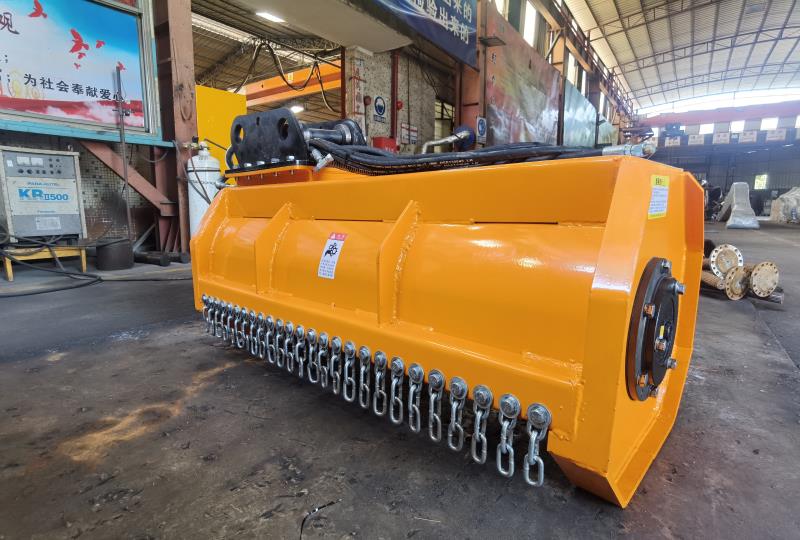


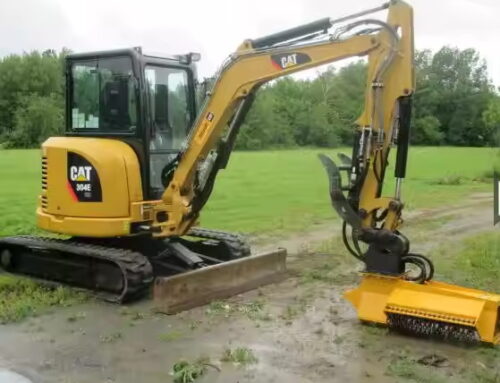
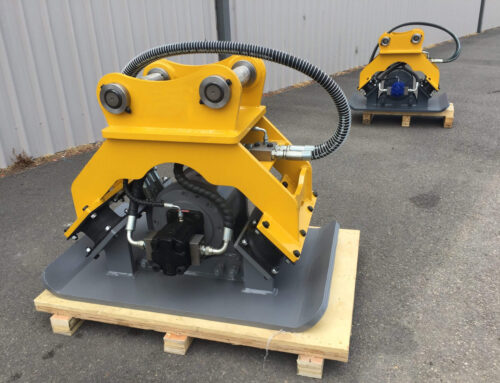
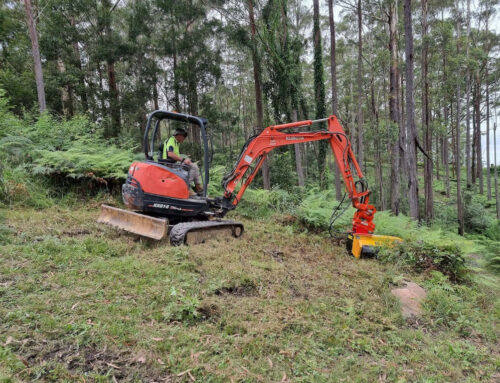
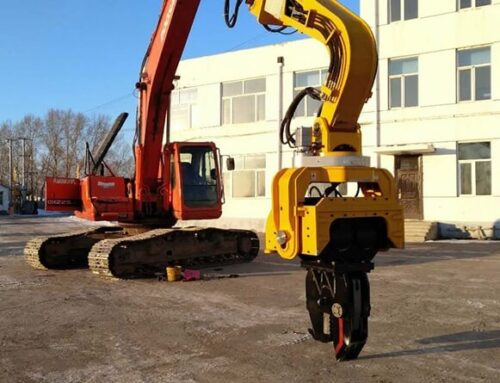
Leave A Comment